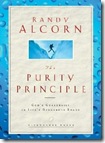
“What exactly is the point of having a Christmas tree?” enquired one of the neighborhood boys.
“Um… I don’t know.” I said fighting with the Christmas tree stand from underneath the tree, while glass ornaments took suicidal jumps off the branches and onto the floor, and the CD player hummed “I’ll be Home for Christmas.” For a moment, the reason anyone ever bothered decorating seemed to have escaped me.
“Don’t people normally take their trees down after Christmas?” he asked again staring at the lopsided tree that was standing in our living room with amusement.
“We’re not taking it down.” Ian, my copartner in tree trimming, answered. “We’re just… well… starting over again.”
“You know,” I said while picking tinsel and pine needles out of my hair, “we’ve been working on this silly tree for the past four hours. We’ve had to take all the ornaments off it, and it still doesn’t even stand up straight!” Why do we have Christmas trees? The word “fun” seems to be coming to mind, but who knows.
With an “I’m an adult, I can handle it!” attitude Ian and I had set out to make sure the house didn’t burn down, and somehow the Christmas tree was set up by the end of the day.
We threw our hearts into setting up the tree, and in return, the tree threw itself onto our younger sister, the cat, the coffee table, and it threw most of the ornaments onto the living room floor. We even attempted tying our unruly tree to the wall, but it made it clear it was going to have no part of that by pulled the nails out and threatened to rip a hole in the wall if we dared do it again.
After several hours of blood, sweat and tinsel, we never did successfully “trim the tree.” When mom returned home, the tree was completely stripped and lying on the floor as if it’d been attacked by a roaming gage of marauders. But in a flash of mother magic, the tree was standing straight in its stand, the garlands were hung with care, and the ornaments were artistically arranged on every branch. Our five hour tree trimming extravaganza had been outdone in a matter of minutes, but at least someone had finally put that tree in its place.
This year, as our countless felines run throughout the house, I’m afraid this year’s tree might not have a Christmas ghost of a chance of staying in its stand. Maybe I’ll settle for a Christmas fern.






Recent Comments